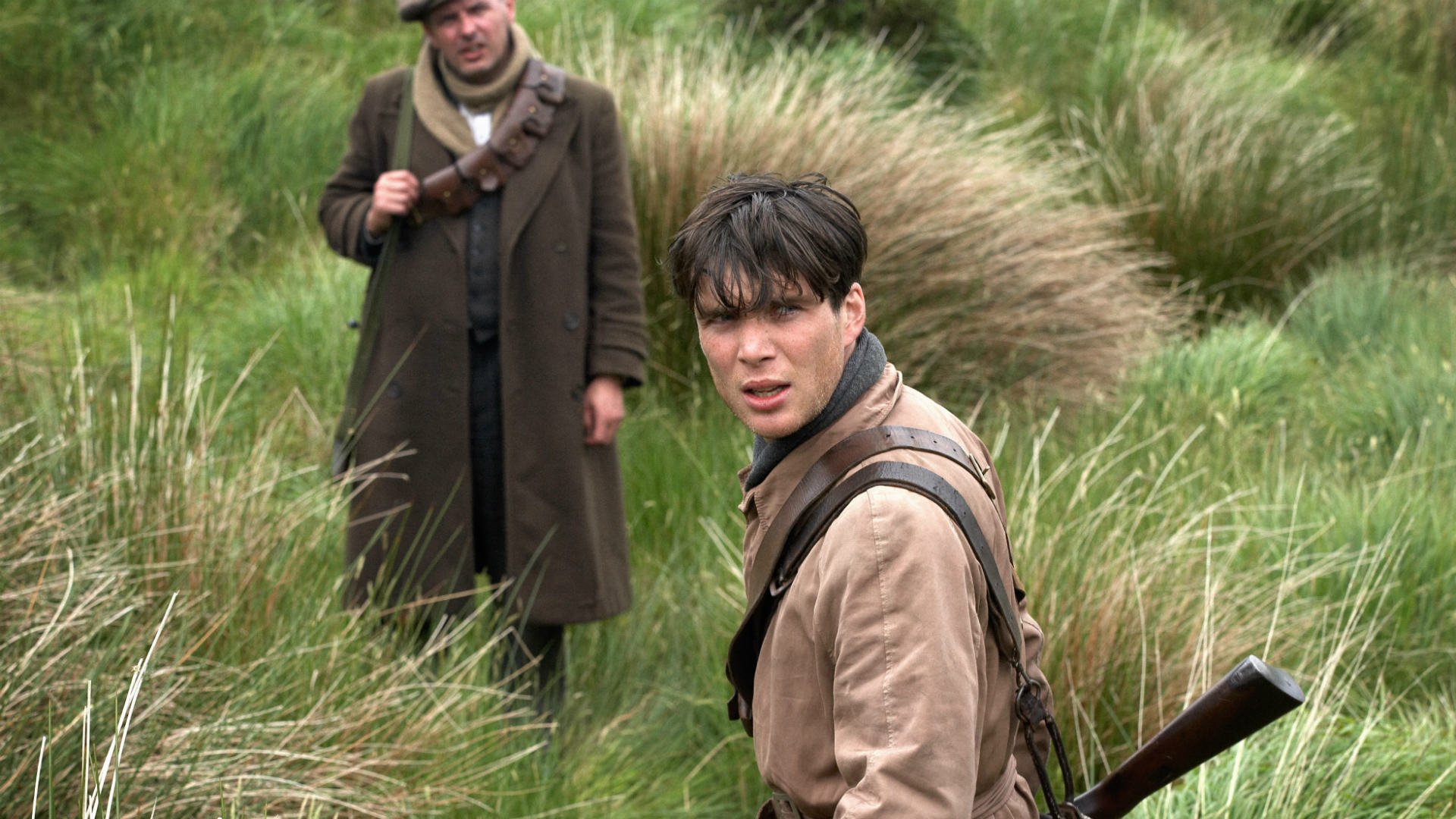“The Wind That Shakes the Barley” (2006)

Ken Loach’s *The Wind That Shakes the Barley* (2006) is a profound and compelling historical drama that delves into the complexities of the Irish War of Independence and the subsequent Civil War. Set against the backdrop of early 20th-century Ireland, the film explores themes of political struggle, personal sacrifice, and the often devastating consequences of revolutionary ideals. Through its meticulous depiction of historical events and its deeply human storytelling, the film offers a poignant commentary on the cost of freedom and the impact of ideological divisions.
*The Wind That Shakes the Barley* is set in Ireland during the tumultuous period of the Irish War of Independence (1919-1921) and the subsequent Irish Civil War (1922-1923). The film follows the story of two brothers, Damien (Cillian Murphy) and Teddy O’Donovan (Padraic Delaney), who become involved in the struggle for Irish independence from British rule. Their journey from idealistic revolutionaries to hardened fighters provides a narrative lens through which the film explores the complexities and consequences of the conflict.
The film begins with Damien, a young medical student, returning to his rural village in County Cork. His peaceful life is disrupted when he witnesses the brutal repression of the Irish people by British forces. Driven by a sense of injustice and patriotism, Damien joins the Irish Republican Army (IRA), where he is soon joined by his brother Teddy. The two brothers become deeply involved in the struggle for independence, leading to increasingly intense and violent confrontations with British troops.

As the film progresses, the brothers and their comrades face not only the external threats posed by the British forces but also internal divisions within the nationalist movement. The signing of the Anglo-Irish Treaty, which ends the War of Independence but leads to the creation of a divided Ireland, creates rifts among the fighters. The O’Donovan brothers find themselves on opposing sides in the ensuing Civil War, highlighting the profound personal and ideological conflicts that arise from political upheaval.
The film’s portrayal of its characters is both intimate and complex. Cillian Murphy delivers a powerful performance as Damien, capturing the character’s transformation from a hopeful young man to a disillusioned revolutionary. Murphy’s portrayal reflects the emotional weight of Damien’s decisions and the personal sacrifices he makes for the cause of Irish independence.

Padraic Delaney’s portrayal of Teddy O’Donovan is equally compelling. Teddy’s character arc, which sees him initially as a committed fighter for independence and later as a proponent of the treaty, illustrates the deep divisions and moral ambiguities of the time. Delaney brings a nuanced portrayal to Teddy’s internal struggle and the impact of the civil conflict on his relationship with Damien.
The supporting cast, including Liam Cunningham as the IRA commander, and Orla Fitzgerald as a village woman caught in the conflict, contribute to the film’s rich tapestry of human experiences. Each character’s story adds depth to the film’s exploration of the broader historical and personal ramifications of the conflict.
*The Wind That Shakes the Barley* delves deeply into themes of political idealism, sacrifice, and the cost of revolution. The film portrays the fervent desire for independence and the sense of justice that drives the characters, while also exploring the tragic consequences of their struggle. The conflict’s toll on personal relationships, particularly the fracture between Damien and Teddy, underscores the profound impact of political divisions on individuals and families.
The film also offers a critical view of the political compromises that come with revolutionary movements. The signing of the Anglo-Irish Treaty, which establishes the Irish Free State but does not fully satisfy the demands of all nationalists, is portrayed as a contentious and divisive issue. The resulting Civil War illustrates the difficulty of achieving unity and the painful compromises that often accompany political change.

Ken Loach’s direction and the film’s cinematography work together to create a vivid and immersive portrayal of early 20th-century Ireland. The use of natural lighting and hand-held cameras adds a sense of realism and immediacy to the film, enhancing its emotional impact. The rural landscapes and historical settings are depicted with authenticity, capturing the stark realities of the time and the profound sense of place.
The film’s use of traditional Irish folk music, composed by George Fenton, further enhances its emotional and cultural resonance. The music, with its plaintive and evocative melodies, complements the film’s themes of loss and longing, providing an additional layer of depth to the storytelling.
*The Wind That Shakes the Barley* was met with critical acclaim upon its release. The film won the Palme d’Or at the 2006 Cannes Film Festival, a testament to its powerful storytelling and effective portrayal of historical events. Critics praised Loach’s ability to convey the emotional and political complexities of the Irish struggle for independence, as well as the film’s strong performances and historical accuracy.
The film’s exploration of the personal and political dimensions of revolutionary conflict has made it a significant contribution to the genre of historical drama. Its portrayal of the human cost of political upheaval and the deep divisions within nationalist movements continues to resonate with audiences and historians alike.
*The Wind That Shakes the Barley* (2006) is a remarkable film that combines historical detail with deeply human storytelling. Ken Loach’s direction, along with the compelling performances of Cillian Murphy and Padraic Delaney, creates a powerful narrative that explores the complexities of the Irish War of Independence and the ensuing Civil War. The film’s themes of sacrifice, political idealism, and personal conflict offer a poignant reflection on the costs of revolution and the enduring impact of ideological divisions.
For those interested in historical dramas and political narratives, *The Wind That Shakes the Barley* offers a profound and evocative examination of a pivotal period in Irish history. Its ability to capture the emotional and political stakes of the conflict ensures its place as a significant and thought-provoking work in the realm of cinematic storytelling.










